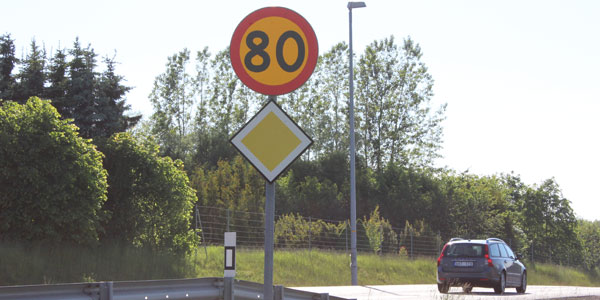At the Road Safety on Five Continents Conference, RS5C, a survey of road users’ attitudes in 38 countries was presentet. Results show large differences between countries in many areas, both regarding behavior and attitudes. A new survey in 50 countries will be conducted in 2018 and the Swedish National Road and Transport Research Institute (VTI), will participate as one of the partners.
A questionnaire survey is a relatively inexpensive way to obtain indicators on safety culture and road users’ behavior. A main advantage is that questionnaires can provide insights into socio-cognitive determinants of behaviour, such as attitudes, perceived social norm, risk perception, or existing habits.
The results of national surveys are seldom comparable across countries because of differences in the aims, the methodology, the questions used, or the sample population being surveyed. The Vias institute therefore launched ESRA (E-Survey of Road Users’ Attitudes), a global cross-national initiative currently in 38 countries and expected to grow to over 50 countries across 6 continents in the next edition.

Photo: Eva Åström/VTI
“The aim of the project is to provide scientific support to road safety policy by generating comparable national data on the current road safety situation. Using a uniform sampling method, an identical questionnaire and uniform programming of the questionnaire, allows for full comparability among the countries, says Uta Meesmann, Vias institute; University of Liège.
Some examples of the use of results from the first survey were presented at RS5C.
Ward Vanlaar, Traffic Injury Research Foundation (TIRF) made a comparison of self-declared mobile use while driving in Canada, The United States and Europe.
“Data show that mobile use while driving is quite high. If people believe “most of us” are not doing this, it could encourage those who do use a mobile to become less likely to use it. This could work well in Canada and Europe where a majority are not using mobile (60-70%), whereas perhaps more difficult in the US where only 50 per cent are not using” says Ward Vanlaar.
Sangjin Han, The Korea Transport Institute (KOTI) presented the results of road users safety attitudes in Korea. The analysis shows that road users in Korea are taking more risks compared to the other 24 countries in the survey used, especially regarding typing text messages or e-mails while driving and not wearing a seatbelt in the front seat of the car.
“These results will be applied to road safety campaigns and education for safer road behaviour in Korea”, says Sangjin Han.
The next edition of the survey, in which more countries can join, will be launched in October 2018. VTI will be one of the new partners.
“This is a great opportunity to bench mark against other countries and to find areas within traffic safety with the potential to improve”, says Anna Vadeby, VTI.
About the ESRA survey
The first ESRA survey (ESRA1) was conducted online using representative samples of the national adult populations in 38 countries. A common questionnaire was developed and translated into 33 national langue versions. The survey had almost 40,000 respondents.
The themes covered in the survey are, amongst others: the use of different transport modes, involvement in road crashes, self-declared behaviour, attitudes towards road safety, and acceptability of unsafe traffic behaviour. For most of the themes the ESRA1 survey investigated four topics: speeding, driving under influence, distraction and seat belt use.
More information and results from the ESRA survey.
More information on RS5C.
Contact:
 Anna Vadeby
Anna Vadeby
anna.vadeby@vti.se
VTI, Sweden






Follow us: